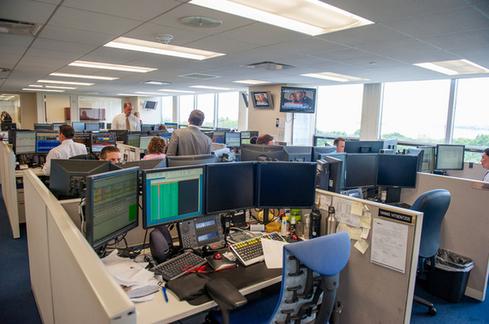03:45 PM
Banking Bailout: Is Bigger Truly Better?
Rarely do Davids win. After all, Goliaths have all the advantages. They have more people, more capital, more technology, more lobbying power and more might. While Davids may win an occasional battle, Goliaths usually win the war. And when Davids do win, what do they do? They acquire other Davids and become Goliaths. And even when Goliaths lose, they sometimes win -- case in point: the recent global banking bailouts.
So when does a Goliath become too big? And should we really be creating even larger Goliaths?
Now, we really can't have our top-tier financial institutions go belly up. That would be really bad. If the large banks fail, credit dries up; and when credit dries up, the economy tanks. And while economies can't continue in high gear forever, a global credit crisis can put a crimp in billions of people's lives. In addition, so much of what banks do is guaranteed or insured by governments that even if banks become insolvent, they effectively get bailed out anyway. And it is usually less expensive to wind down a solvent institution than to sell off an insolvent one for scrap.
But should we be providing a safety net for companies that jeopardize the global financial system through their stupidity? Should we be giving these firms money so they can make acquisitions and get larger? If the core firm can't manage itself, can we trust its risk management structure to help it avoid this kind of trouble again?
While I was unequivocally for the bailout, I am becoming more confused as to how these financial behemoths should be treated after the bailout. And I am coming to the realization that bigger is not necessarily better.
Large firms by definition are harder to align and harder to manage, making them slower to respond. But these firms have huge scale and huge reach. Few but Goliaths can be global, supporting multi-varied businesses and providing the many services that global corporations and money managers need. However, large firms need large and extremely consistent profit engines, as well as extremely vigilant controls -- the kind that were lacking and thus contributed to the current credit crisis.
But is the need to generate significant and increasingly larger profits completely at odds with risk management and control? Can an extremely heterogeneous and multi-varied financial conglomerate striving for compounded earnings growth ever stop the kind of risk taking that precipitated the crisis? I am not sure that it can.
So if behemoths topple over simply by their sheer weight alone, then how do we bail out these organizations that need our help and at the same time put their management teams out to pasture while making the firms smaller, more risk-aware and more stable? Shouldn't we be forcing these large firms to divest, split up and become smaller and more manageable rather than concentrate the risk in the hands of firms that we unequivocally know cannot be trusted? Shouldn't we be taking capital from these larger firms and putting it into the hands of smaller and more capable organizations?
If I were King of the World, I would not only be thinking about how to make these institutions solvent in the short term (so governments do not have to take them over), but also how to split them apart, make their management more in touch with the day-to-day operations and make their business models much less risky. That is not to say that these spin-offs couldn't be fully vested in risky businesses; but, being independent, self-capitalized and smaller -- much smaller -- if they blow up, they don't take the world with them. And at the end of the day, isn't that what we want: competition and focus, leaving the Armageddon behind?
Larry Tabb is the founder and CEO of TABB Group, the financial markets' research and strategic advisory firm focused exclusively on capital markets. Founded in 2003 and based on the interview-based research methodology of "first-person knowledge" he developed, TABB Group ... View Full Bio





















